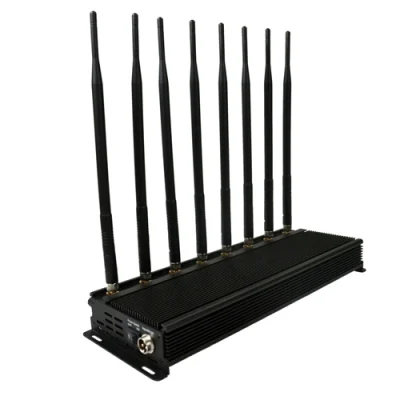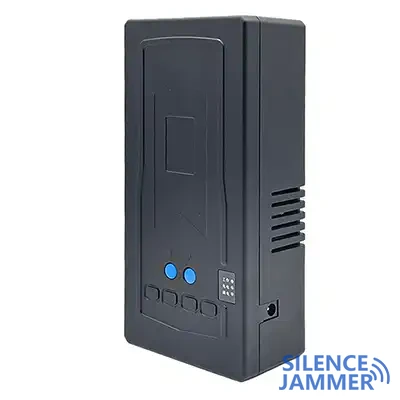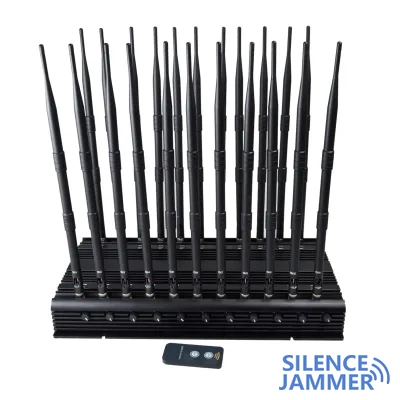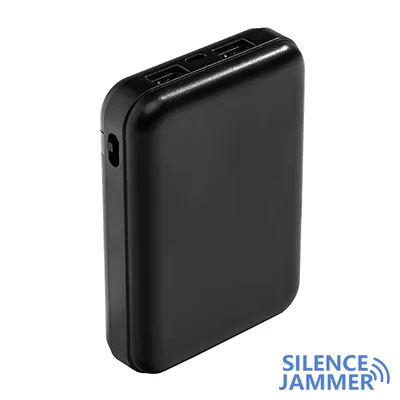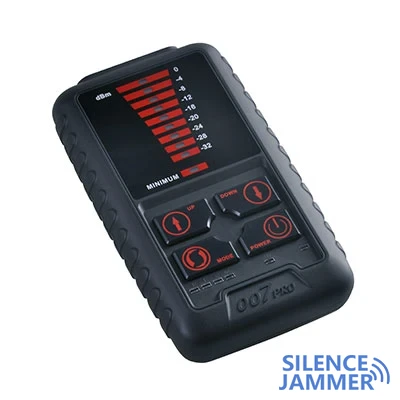The installation and use of prison signal jammers has sparked legal and ethical debates. Although these devices are designed to combat criminal activity in prisons, especially through cell phones, their operation can have an impact on surrounding communities, leading to public opposition and legal action.
1. Legal basis for prison signal jammers
International telecommunications regulations: According to the International Telecommunication Union (ITU), the use of signal jammers must strictly comply with national and international telecommunications laws to avoid interfering with legitimate communications.signal jammer
Legislative status of signal jammers in various countries: In the United States, the use of signal jammers is strictly controlled and can only be used by the government and special agencies. In Chile, the measure must also be approved by relevant departments.cell phone jammer
Chilean legal framework: In recent years, the Chilean government has promoted the use of signal jammers to combat criminal activity in prisons, but the measure still faces legal and social challenges.GPS jammer
2. Ethical controversy
Balance between public safety and personal communication rights: The installation of signal jammers involves public safety issues, but it may also infringe on personal freedom of communication, especially for residents near prisons.Wifi jammer
The position of the Gendarmerie Association: Pablo Jaques, president of the Chilean Gendarmerie Association, said that signal jammers are a necessary measure, especially in the fight against organized crime. However, they also realize that technology needs to be constantly updated to ensure that it does not have a negative impact on residents outside the prison.
Criticism of human rights organizations: Some human rights organizations believe that the widespread use of signal jammers may violate the basic rights of prisoners, prevent them from keeping in touch with the outside world, and even hinder rescue communications in emergency situations.
3. The impact of equipment operation on neighborhood communities
The rise of neighborhood opposition: In some cases, residents near prisons complain that signal jammers affect their normal communications, especially mobile phones and the use of the Internet.
Case analysis: Neighbors’ complaints and government responses: In Chile, although the government claims that signal jammers will not affect residents, some communities still express concerns. This prompted the government to commit to using more directional antenna technology to reduce the range of interference.
Opinion of the academic community: Scholars generally believe that if high-precision directional antennas are used, interference with communities around prisons can be effectively reduced. However, the implementation of this technology requires a high level of technical support and monitoring.
4. Social impact of signal jammers
Crime control in prisons: Signal jammers have achieved significant results in reducing criminal activity in prisons, especially in blocking illegal mobile phone communications and reducing the incidence of command criminal activities.
Responses from prisoners’ families: Prisoner families believe that the use of signal jammers may prevent them from staying in touch with their loved ones, further exacerbating the sense of isolation in the prison environment.
Community concerns and cooperation: To alleviate the concerns of neighbors, governments and community representatives need to work together to explore technical solutions to ensure that the use of signal jammers can achieve prison security goals without interfering with daily communications in the surrounding area.
Conclusion
The use of signal jammers in prisons is a complex topic both legally and ethically. While they have obvious benefits in fighting crime, their potential impact on neighboring communities needs to be fully considered. Governments and technology providers should work together to ensure that the installation and use of signal jammers can ensure the safety of prisons without infringing on the legitimate communication rights of community residents.
Legal and ethical controversy over prison signal jammers
The installation and use of prison signal jammers has sparked legal and ethical debates. Although these devices are designed to combat criminal activity in prisons, especially through cell phones, their operation can have an impact on surrounding communities, leading to public opposition and legal action.
1. Legal basis for prison signal jammers
International telecommunications regulations: According to the International Telecommunication Union (ITU), the use of signal jammers must strictly comply with national and international telecommunications laws to avoid interfering with legitimate communications.signal jammer
Legislative status of signal jammers in various countries: In the United States, the use of signal jammers is strictly controlled and can only be used by the government and special agencies. In Chile, the measure must also be approved by relevant departments.cell phone jammer
Chilean legal framework: In recent years, the Chilean government has promoted the use of signal jammers to combat criminal activity in prisons, but the measure still faces legal and social challenges.GPS jammer
2. Ethical controversy
Balance between public safety and personal communication rights: The installation of signal jammers involves public safety issues, but it may also infringe on personal freedom of communication, especially for residents near prisons.Wifi jammer
The position of the Gendarmerie Association: Pablo Jaques, president of the Chilean Gendarmerie Association, said that signal jammers are a necessary measure, especially in the fight against organized crime. However, they also realize that technology needs to be constantly updated to ensure that it does not have a negative impact on residents outside the prison.
Criticism of human rights organizations: Some human rights organizations believe that the widespread use of signal jammers may violate the basic rights of prisoners, prevent them from keeping in touch with the outside world, and even hinder rescue communications in emergency situations.
3. The impact of equipment operation on neighborhood communities
The rise of neighborhood opposition: In some cases, residents near prisons complain that signal jammers affect their normal communications, especially mobile phones and the use of the Internet.
Case analysis: Neighbors’ complaints and government responses: In Chile, although the government claims that signal jammers will not affect residents, some communities still express concerns. This prompted the government to commit to using more directional antenna technology to reduce the range of interference.
Opinion of the academic community: Scholars generally believe that if high-precision directional antennas are used, interference with communities around prisons can be effectively reduced. However, the implementation of this technology requires a high level of technical support and monitoring.
4. Social impact of signal jammers
Crime control in prisons: Signal jammers have achieved significant results in reducing criminal activity in prisons, especially in blocking illegal mobile phone communications and reducing the incidence of command criminal activities.
Responses from prisoners’ families: Prisoner families believe that the use of signal jammers may prevent them from staying in touch with their loved ones, further exacerbating the sense of isolation in the prison environment.
Community concerns and cooperation: To alleviate the concerns of neighbors, governments and community representatives need to work together to explore technical solutions to ensure that the use of signal jammers can achieve prison security goals without interfering with daily communications in the surrounding area.
Conclusion
The use of signal jammers in prisons is a complex topic both legally and ethically. While they have obvious benefits in fighting crime, their potential impact on neighboring communities needs to be fully considered. Governments and technology providers should work together to ensure that the installation and use of signal jammers can ensure the safety of prisons without infringing on the legitimate communication rights of community residents.



